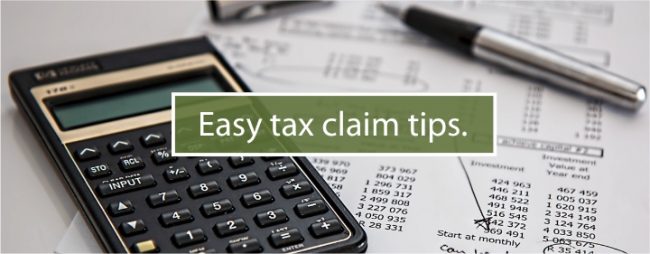Bank statements, municipal bills, phone bills, petrol slips, receipts, the list goes on. It’s that time of year again, when you have to forage through stacks of paper for everything that you need to fill in your tax return.
Not everyone is great at admin... and there are piles of things to keep track of; it starts to mount up if you don’t have some sort of system in place.
Here are some basic tips on how to keep this process as painless as possible:
Don’t throw anything (relevant) away.
You want to hang on to any documents dated for the tax year that you still have to claim for. Wait to hear whether you are being audited by the taxman first before you start tossing documents out. As long as you know that you have everything that you need it just comes down to finding what is necessary.
Keep all of this in one place.
The last thing you need is to be combing through every room in your house looking for that stack of receipts you know you left “somewhere around here”. Buy a large box and dump all bank statements, bills and receipts into the box. If you have the time then organise the documents in the correct date sequence with similar expenses clipped together; even if you don’t have the time, just put it all in one place. You will thank yourself later!
Round-up your receipts.
Receipts in your bag, wallet or car can easily go missing in the everyday hustle and bustle. Try and round them up once every couple of weeks and stash them in the box you purchased in point two...
Keep a diary.
Records kept on a laptop can get corrupted and laptops go missing. Buy a small diary to jot down your tax-deductible bills for the month, it will take five minutes (Having a digital copy of these records won’t hurt, just remember to backup these files). You can also record mileage and petrol expenses in your diary if you want to claim for travel expenses. It’s likely you won’t remember these trips later.
Get a tax adviser.
Getting an expert to help you almost always gets you more out of your returns or allows you to pay in less. They know exactly what you can claim for and the gains, more often than not, outweigh the cost. This is so worth it!
Print out bank statements.
Sometimes it can be difficult to access documents online, especially if you’re going further back than six months. Bank statements provide you with lots of information needed to do your taxes. Print them out and put them in your box, then everything is in one place and your records are easily accessible.
Record the tax you’ve already paid.
Your tax adviser can pick this up off the system, but there might be payments you have made that go missing. Bank statements only show what you have been paid, not whether tax has been deducted. Keep a record of invoices you send out.
Set a day aside.
This process requires a lot of concentration and focus. You don’t want to be distracted and you don’t want to be in a rush, this will only elevate your stress levels. Find out when the due date is well in advance and set a day aside to lay this beast to rest.
In need of financial advice? I can help you out, let’s get in touch!
Source: fin24

